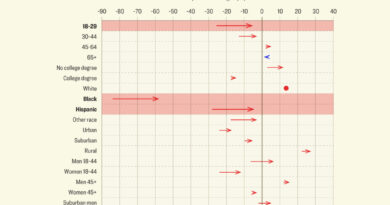Court Finds Judge’s Criticism of Supreme Court Justice Alito Breached Ethics Rules
Judge Michael Ponsor expressed in a newspaper column that Justice Samuel Alito ought to have realized that displaying certain flags could be seen as politically provocative.
A federal judge has been found to have breached judicial ethics guidelines by publicly criticizing Supreme Court Justice Samuel Alito in an op-ed piece, following an order released on December 17.
This organization, led by Mike Davis, had submitted a judicial misconduct complaint earlier in the year under the federal Judicial Conduct and Disability Act, claiming that Ponsor had violated judicial ethics.
The Article III Project pointed out that while Ponsor did not specify any cases pending before Alito, his remarks could be interpreted as an implied request for Alito to recuse himself from ongoing January 6-related cases before the Supreme Court at the time the op-ed was published.
In the weeks following the January 6, 2021, events at the U.S. Capitol, during Congress’s certification of the 2020 presidential election results, flags associated with the “Stop the Steal” movement—asserting that President Joe Biden’s 2020 electoral victory was fraudulent—were displayed at Alito’s properties.
One of the flags was an upside-down U.S. flag displayed at his residence in Virginia, while the other was a pre-Revolutionary War “Appeal to Heaven” flag at his beach house in New Jersey.
Alito stated that it was his wife who flew the flags and emphasized that she was not making any statement regarding the 2020 election.
Ponsor remarked, “To put it simply, any judge with reasonable ethical instincts would have recognized immediately that displaying the flag in that manner was both inappropriate and unwise.”
Ponsor also asserted that any reasonable judge should have understood that the flag displays could be interpreted as “a banner of allegiance on partisan matters that are or could be before the court.”
As a member of the Fourth Circuit Judicial Council, Judge Albert Diaz of the U.S. Court of Appeals for the Fourth Circuit found that Ponsor violated the Code of Conduct for U.S. Judges.
“The political implications and nuances of the essay breached Canon 3A(6)’s prohibition against publicly commenting on the merits of a pending case,” Diaz remarked.
Ponsor communicated to Diaz that he “did not have any specific case in mind” when he wrote the piece.
Diaz asserted that “considering the circumstances surrounding the publication, including significant media coverage calling for Justice Alito’s recusals from pending January 6 cases, it would be reasonable for the public to view the essay as commentary on partisan issues and as a call for Justice Alito’s recusal.”
Ponsor has since issued an apology for the op-ed.
“For these violations of the Code, which were unintentional at the time but are now clear upon reflection, I offer my sincere apology and my promise to diligently avoid any such mistakes in the future,” he wrote in a letter dated November 20, which was attached to Diaz’s order.
Davis from the Article III Project stated that he accepted Ponsor’s “apology letter at face value.”
“The courts and Judge Ponsor took this matter seriously,” he commented in a statement.
The Epoch Times contacted both Ponsor and Alito for their comments; however, no responses were received by the time of publication.
Reported with contributions from Reuters.




